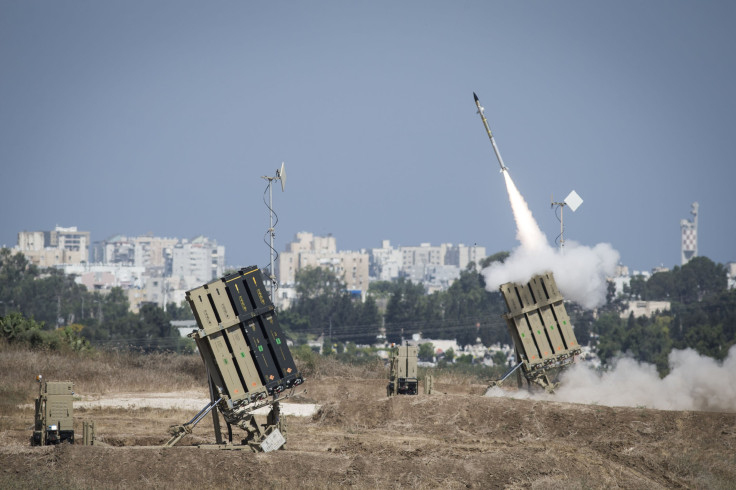Will Israel Go To War? Tel Aviv Wants More Missiles For Future Lebanon Conflict

Israel has considered purchasing hundreds of more missiles in the event of a future conflict with its northern neighbor Lebanon and its powerful Shiite paramilitary foe, Hezbollah, Israeli daily Haaretz reported Tuesday.
Defense officials were reportedly interested in expanding the military's precision-guided missile arsenal, specifically looking at IMI Systems’ Extra rocket and Israel Aerospace Industries’ LORA surface-to-surface missile. The former has a range of about 93 miles and can carry a 264-pound warhead, while the latter is able to carry a 1,300-pound warhead and accurately strike a target 186 miles away from land or sea.
The military's current missile of choice, the Romach artillery rocket, has a range of over 21 miles with a 44-pound warhead. These weapons would remain in limited use, but officials aimed to use the newly acquired Extra rockets and LORA missiles to ensure each maneuvering division was outfitted with a rocket battalion. Military officials reportedly wanted to enhance the ballistic capabilities of Israeli ground forces to minimize troops' reliance on the country's air might.
Despite being ranked as one of the most powerful and advanced military powers in the Middle East, Israel considers one its most formidable enemies to be the Lebanese-based, Iran-backed Hezbollah group. The organization, which is led by influential Shiite cleric Hassan Nasrallah and plays a major role in Lebanese politics, was formed in 1982 to fend off Israeli occupation of southern Lebanon during the nation's 15-year civil war. Hezbollah gained popularity in the region for its role in successfully expelling Israel and once again forced an Israeli withdrawal following a second war in 2006. The wars, along with occasional border skirmishes, have resulted in thousands of deaths on both sides.
Hezbollah, which is labeled a terrorist organization by Israel, the U.S. and several Western European and Gulf countries, is believed to possess about 100,000 short-range Grad and Katyusha rockets with a range of nearly 30 miles as well as a vast arsenal of other projectiles capable of hitting targets over 430 miles away. The militant group has been a primary player in the conflict in Syria, fighting on behalf of Syrian President Bashar Assad, who enjoys Russian and Iranian support. While Israel officially maintains its neutrality in the war, it has struck Syrian military and Hezbollah positions, often using Lebanese airspace. Recent major gains by Assad and his Lebanese allies have concerned Tel Aviv, who consider Hezbollah's presence in Syria a national security risk for Israel.
© Copyright IBTimes 2024. All rights reserved.





















